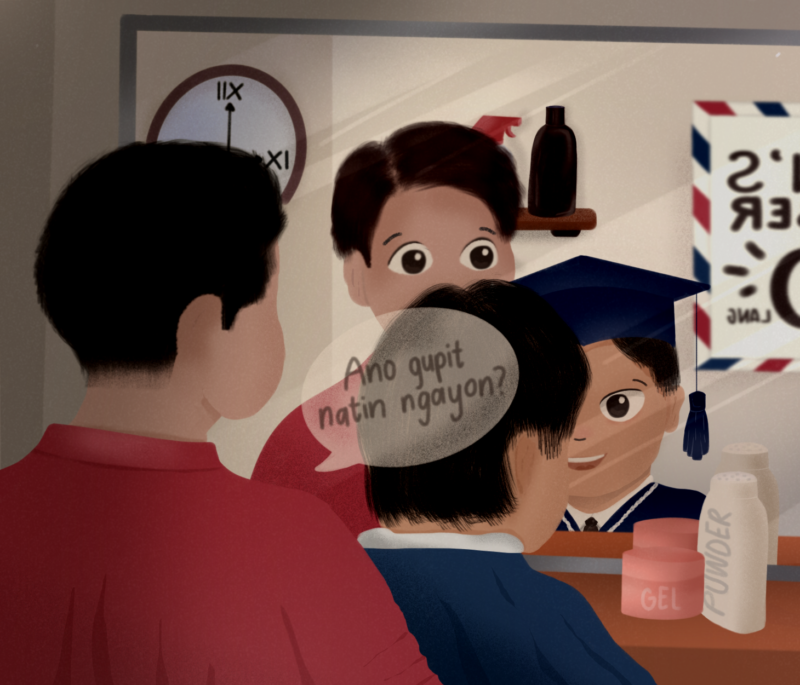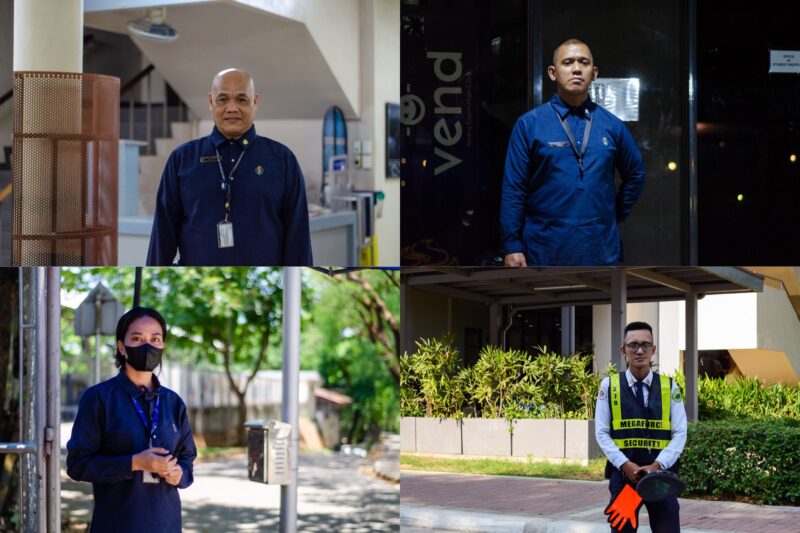Martial Law and the 1986 EDSA Revolution may mean different things to different people. But for a six-year-old whose earliest memories were of her parents’ imprisonment, it did not mean much more than a celebration of “freedom.”
It was only when she grew older that Issa Manalo Lopez understood how the revolution that led to the collapse of a dictator was more celebratory in symbol than tangible change.
As the daughter of imprisoned political activists against the regime of late dictator Ferdinand Marcos, Sr. in the 1980s, Issa learned to confront her experiences of being born in prison through the art of theater. Learning to share her personal narratives of trauma was not easy, but coming out a survivor of a harrowing circumstance, she now addresses the fears and issues that have been plaguing herself and our country.
Prison cells to curtain calls
Sporting a pixie cut, a serious yet solemn expression, and a confident stature, Issa shows no traces of her difficult past. The softness of her speaking voice and the passion behind the words she uses as she talks about theater does not reveal any sign of a rather unorthodox childhood. She did, however, have to go through the trials of being a child away from her parents as they were sent to incarceration.
It was a trying time for the country back then. It was a time when the Marcos regime brutalized anyone who dared stand against it. According to Amnesty International, about 70,000 were imprisoned, 34,000 were tortured, and 3,240 were killed from 1972 to 1981 alone, not yet including abuses done after.
As political activists, Issa’s parents were among those imprisoned and tortured.
Issa, born in prison, did not grow up with her mother who remained within the confines of prison in Iloilo while her father was “underground.” Instead, she was raised by her grandparents in the company of her uncles and aunts. It was only during the period of 1982-1985, when her father was imprisoned in Camp Bagong Diwa that she and her mother would visit him and they were given a chance to live as a family.
Issa shares how the set-up in Bagong Diwa felt normal to her despite the prison’s use to detain political prisoners. She recalls how there were bunk-beds and banig for rest, and how there were classes, drawing programs, and martial arts for the children of the inmates.
She shares how it was made into a prison for political detainees. She also recalls how she was happy that she had playmates in the camp as opposed to growing up alone. But it was not enough to call a safe environment.
Instead of growing up with her family, she grew up with the memory of how it felt to have parents in prison. Her mother experienced maltreatment during pregnancy. Issa shares, “Ginamit ‘yung labor pains niya as a form of torture.”
([The prison authorities] used her labor pains as forms of torture.)
“Alam mo na ‘di lang basta malayo yung magulang mo… Malayo sila dahil delikado para sa kanila na kasama ka,” Issa adds as she recalls her thoughts growing up away from her parents.
(You know your parents aren’t simply away from you, they’re away from you because it isn’t safe.)
So with the psycho-emotional baggage, she grew preferring to isolate herself. Dealing with the lonesome and nostalgia from momentary visits became more challenging, eventually then leading her to gravitate towards musicals, films, and ballet.
This was Issa’s childhood, until 4th grade. Four years after the lifting of Martial Law, her aunt had brought her to Repertory Philippines and found how theater taught her “to really not hold everything in and learn to really express myself,” deciding to pursue her inclination for the art.
Performing was never easy for her, because it meant reliving the painful past, shared with other “prison babies” during Martial Law. Nonetheless, it is because she knew theatre was where she was most articulate to tell their shared struggle, she continued to open-up.
Performing to heal
With her disappointment caused by the burial of Marcos in Libingan ng mga Bayani, Issa saw how creating artworks with these emotions have led her to understand her lived experiences. While the issue of Marcos’ burial was causing an uproar, she created her first autobiographical work, a one-woman show titled I. It was a piece dedicated more to an understanding of herself through examining her past experiences, whether happy or sad.
As it has become a part of her context, the experience of having to live through a time of turmoil naturally reveals itself in her works. Because an autobiographical play is intrinsically connected to its writer, it helped her assess the connection of her emotions to the issue.
“Doon mo makikita na ganoon ka-importante ang personal narratives,” she says.
(That’s when you realize the importance of personal narratives.)
Theater allows Issa to “take a step back” and assess the events that have happened. It granted her healing as it became a means for her to face her personal issues caused by her past.
As of now, she has written two critically acclaimed autobiographical plays and a duet. All of which incorporate her struggles. Her last one, titled I:Underwater, is about her experience of a mental disorder.
But beyond recognizing how theater could be a means to personal restoration, Issa also sees theater as an avenue to confront issues faced by Filipinos. Theater’s role then does not end with her own healing, as it could further be involved in the country’s political issues.
Within or beyond our awareness, political turmoils have been determinants of our nation’s identity. “[H]indi natin namamalayan na sineshape niya yung pang-araw-araw natin,” she says.
(We don’t notice how it shapes our everyday life.)
Revolution takes the stage
Just like Martial Law, the story of the People Power Revolution can be told in many ways. But for Issa, it was but a passing reprieve. “I never really saw the EDSA revolution as the biggest triumph,” she says.
Indeed, the administrations that followed Marcos’ continued to be marred with human rights violations and state abuses of power. For one, a 1992 Amnesty International report states that no less than 550 unarmed civilians—including activists, farmers, and church workers, among others—were slain by the government or government-backed forces since 1988. Some of the bodies even showed signs of severe torture.
Issa recalls how her father remained imprisoned as political activists continued to be persecuted despite the dictator’s downfall. New oligarchs merely replaced old ones; injustice was but given a new face. Yet the role of theater persists.
She envisions theater’s use in facilitating programs for community healing. For Issa, theater can go beyond having a stage, and serve as psychosocial therapy, recalling how it has aided her in coming out a survivor currently fighting against desensitization and complacency through arts.
But the greatest fear is not anymore in her past, but in the present as a new culture of violence rises. “[For the people to see] extra-judicial killings as a cure… Natatakot ako na makita ng tao na cure ang violence.”
(I fear people will recognize violence as a cure.)
Still, Issa remains hopeful that EDSA would mirror our reality today, saying, “Doon mo talaga makikita na nagsama-sama lahat ng Pilipino at may pinaglalaban sila.”
(EDSA Revolution is where you will find how the Filipinos stood in unity as they fought for something.)
For Issa and others like her, the People Power Revolution is not yet complete. With the issues the Philippines currently faces in mind, Issa pleads, “bitbitin natin siya para palalahanan na hindi tayo powerless.”
(Let us carry this [EDSA] as a reminder that we are not powerless.)
Photo by Izza Zamoranos







